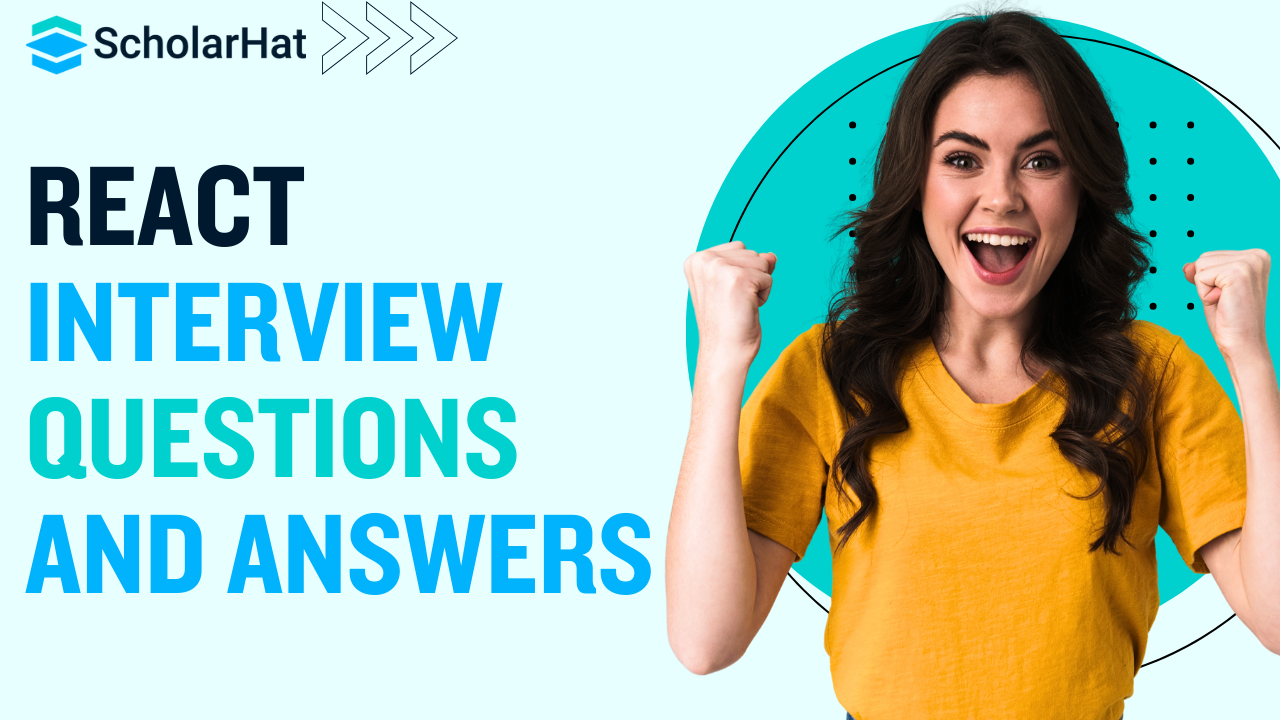Conquering the React Interview: A Comprehensive Roadmap to Success
In the dynamic world of web development, React has emerged as a game-changer, revolutionizing the way developers build user interfaces. As the demand for skilled React developers continues to soar, acing the React interview has become a crucial step in landing your dream job. Whether you’re a seasoned React pro or a newcomer to the framework, proper preparation is key to showcasing your skills and standing out from the competition.
Laying the Foundation: React Tutorial
Before delving into interview preparation, ensure you have a solid understanding of React fundamentals. Revisit concepts like JSX, components, state management, props, lifecycle methods, and hooks. Familiarize yourself with React’s core principles, including virtual DOM, one-way data binding, and the component-based architecture.
Mastering React’s Ecosystem
React is more than just a library; it’s an ecosystem comprised of various tools and libraries that enhance development efficiency and functionality. Gain proficiency in popular libraries and tools such as React Router for client-side routing, Redux or Context API for state management, and testing libraries like Jest and Enzyme.
Practicing React Interview Questions
Hands-on practice is crucial for excelling in React interviews. Dedicate time to solving a wide range of React interview questions, covering topics like component lifecycle, state management, performance optimization, and testing. Online coding platforms and React interview question repositories can be valuable resources for honing your skills.
Showcasing Your React Projects
Interviewers are often eager to explore your real-world experience with React. Prepare to discuss personal projects, contributions to open-source React libraries, or professional work you’ve done using the framework. Be ready to explain the challenges you faced, the solutions you implemented, and the lessons you learned along the way. Having a portfolio of React projects to showcase can significantly boost your chances of success.
Diving into Advanced React Concepts
While mastering the basics is essential, interviewers may also assess your understanding of advanced React concepts. Familiarize yourself with topics like code splitting, server-side rendering, React Native for mobile app development, and integrating React with other libraries or frameworks like GraphQL or Next.js.
Practicing Coding Challenges and Whiteboard Interviews
Many React interviews include coding challenges or whiteboard sessions, where you’ll be asked to write code or explain algorithms on the spot. Practice these skills by solving coding problems related to React, explaining your thought process out loud, and seeking feedback from experienced React developers or mentors.
Understanding JavaScript Fundamentals
React is built on top of JavaScript, so having a solid grasp of JavaScript fundamentals is crucial. Brush up on concepts like closures, hoisting, prototypal inheritance, asynchronous programming (promises and async/await), and ES6+ features. Understanding these fundamentals will not only enhance your React skills but also demonstrate your overall proficiency as a JavaScript developer.
Staying Up-to-Date with React Trends and Best Practices
The React ecosystem is constantly evolving, with new releases, libraries, and best practices emerging regularly. Stay informed about the latest trends, updates, and industry-specific applications of React. Subscribe to React-related blogs, forums, and podcasts to stay ahead of the curve and demonstrate your commitment to continuous learning.
Preparing for Behavioral and Soft Skills Questions
While technical skills are essential, interviewers also evaluate your soft skills and cultural fit. Prepare to discuss your problem-solving approach, communication skills, ability to work in a team, and enthusiasm for continuous learning. Practice articulating your thoughts clearly and confidently, as effective communication can make a lasting impression.
Mock Interviews and Feedback
As the interview date approaches, consider participating in mock interviews with experienced React developers or mentors. These simulations will help you practice your responses, identify areas for improvement, and receive valuable feedback. Incorporate the feedback into your preparation to refine your skills and boost your confidence.
Maintaining a Positive Mindset and Passion for Learning
Finally, remember that interviews can be stressful, but maintaining a positive mindset and showcasing your passion for learning is crucial. Approach the interview with confidence, stay focused, and trust in your preparation. Remember, the interview is not only an opportunity for the employer to evaluate you but also for you to assess if the role and company align with your career goals and values.
In conclusion, preparing for a React interview requires dedication, practice, and a strategic approach. By mastering the fundamentals, staying up-to-date with the latest trends, and honing your problem-solving and communication skills, you’ll be well-equipped to showcase your React expertise and increase your chances of success. Embrace the challenge, and let your passion for React shine through during the interview process.

